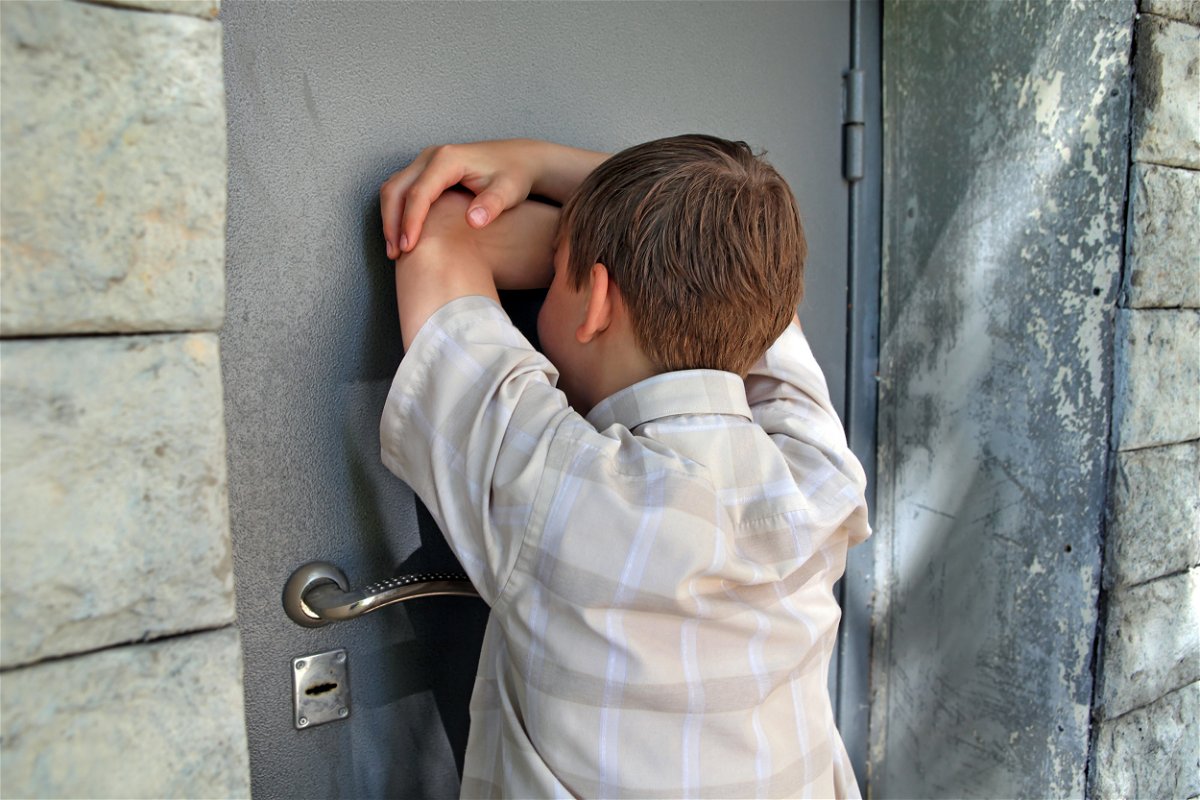Your middle school child is the most amazing person

When faced with emotional outbursts from tweens
By Deborah Farmer Kris, CNN
When you are a middle school teacher, people view you as either a saint or a masochist. When you are the parent of a tween, strangers offer sympathy.
Middle schoolers are the most maligned and misunderstood age group. I taught these grades for more than 10 years and developed a quick retort to pitying comments: “It’s an easier age to teach than it is to be.”
I now have a tween of my own, and I’ll admit it: Middle schoolers are my favorite. So why do these years feel so hard for both adults and kids?
Why middle school can feel so rough
Phyllis Fagell, a school counselor and author of the forthcoming book “Middle School Superpowers: Raising Resilient Tweens in Turbulent Times,” told me, “Contrary to the negative cultural narrative, the hits your kid takes in middle school aren’t inherently worse than the setbacks they experience at other points in their life. They just happen at a time when kids have little life experience or perspective, their hormones are fluctuating wildly, and they’re still figuring out who they are and who they want to be.”
Because of that, what “looks like meanness often is social clumsiness,” she said, because kids are sorting out how to pick a good friend and be a good friend while swimming in choppy social waters.
Adults’ perception of 11- to 14-year-olds is often colored by our own emotional memories of those years. As one salesclerk told me, “Middle schoolers scare me because those were the worst years of my life.”
Also, parents are often surprised at how early adolescence seems to start. Dr. Lisa Damour, a psychologist and author of the new book “The Emotional Lives of Teenagers: Raising Connected, Capable, and Compassionate Adolescents,” told me that because we use the term “teenager,” we often don’t expect to see “teen” behavior until about 13.
“But psychologists have always marked age 11 as the beginning of adolescence,” Damour said. “Because of this misunderstanding, many parents feel unnecessarily surprised or worried when their sixth graders suddenly become more private, reject their childhood nicknames or start caring about whether their clothes match what their peers are wearing. This is expectable adolescent behavior, and it’s arriving right on time.”
During these years, your kid’s brain is going through a major growth spurt, second only to the birth to age 3 range. Remember how much your child changed from infancy to preschool? How you celebrated every milestone and felt overwhelmed by their intense emotions? That’s happening again, and it can be awe-inspiring and taxing.
We need to bring a new mindset to these parenting years. Rather than viewing middle schoolers with dread, we can marvel at their growth and look for ways to strengthen our relationship as these youths enter a new phase of life. I promise you it’s possible, and here are four ways to do it.
Embrace the ‘jumble of contradictions’
In the last year, my middle schooler has adopted a new look, discovered coding, written half a novel, beaten me (regularly) in Wordle, memorized Shakespearean insults and navigated social drama. My kid can offer stunning insights and then ask Siri to play “The Poop Song,” just to bug me.
“Middle schoolers are a jumble of contradictions and a mystery even to themselves,” Fagell told me, “but that’s what I love about them. Depending on the day — or the minute — a middle schooler can be 14 going on 4 or 14 going on 40. They’re sophisticated and take things in quickly yet aren’t jaded.”
Damour sees this childlike and adultlike combination as a strength. “I love working with middle schoolers because they are as insightful as they are playful, and they are often very playful,” she said.
They may be insecure, Fagell said, but their vulnerability is coupled with empathy for others and a strong desire to please others and make a difference. “They truly believe they can change the world — or at least their school’s dress code — with a well-worded petition. Middle schoolers are unflinchingly honest, which can come off as mean at times, but they’re the funniest humans on the planet.”
Let your face light up
Kids this age need to know they are lovable. But they also need to know they are likable — because they are well aware of the cultural narrative about their age group. Just recently, my tween and I were listening to a radio show where the host said parents have “about 12 good years before kids go bad.” It was a joke, but this sentiment is in the ether.
But think back to your adolescence: Do you remember the adults who genuinely seemed to like you? A school librarian or a coach or a friend’s mom? The ones who would brighten up when you walked into the room and who took your ideas seriously? Do you remember how good that felt?
“In my experience,” Damour said, “middle schoolers are at their best around adults who delight in the fact that they are often smart and silly in equal measure.”
Years ago, I came across an interview with acclaimed novelist Toni Morrison in which she shared a question that guided her parenting and that has become my mantra: “When a kid walks in a room — your child or anybody else’s child — does your face light up? That’s what they’re looking for.”
This question is powerful in its simplicity. It’s an action that is within my control when so much about raising kids is not. My children may be moody, but my expression can still say, “I’m so happy to see you.”
Don’t take their outbursts personally
“I slammed my bedroom door in my dad’s face last night, and I don’t even know why,” a seventh grader told me one day. Another student shared this insight, “I wish my parents would remember that when I get mad at them, it’s almost because I’m stressed about something else.”
For middle schoolers, and most humans, for that matter, anger is often a tip-of-the-iceberg emotion. Underneath the surface might be loneliness, worry, social pressure or anxiety about an upcoming test. They may be tired, hangry, or experiencing a hormone surge. In other words, there are probably a host of reasons they slammed the door that have nothing to do with you.
If we can resist taking the bait and rising to meet their emotional spike, we can offer them two things they need: validation (“I get why you are upset, and you have a right to be”) and limits (“we don’t use that language because it’s hurtful”).
Remember, your kid is listening
Middle schoolers need mentors: trusted adults who can help them think through social dilemmas, navigate their digital life, work through emotions and make healthy decisions. “The good news is that you still wield a ton of influence at this age,” Fagell said. “You can help our child acquire key skills and cope with the inevitable awkwardness, self-consciousness and insecurity that every middle schooler is going to experience.”
Middle schoolers really are paying attention to what you say. “Whether or not your child appears to be listening to you, let alone taking your advice, they’re taking in everything you say and filing it away for future use,” Fagell said. “It may be counterintuitive, but if your child pushes back and argues with you, it’s typically because they respect you, value your opinion and want to figure out what you’re thinking and how they can make you proud.”
As parents, we can use our middle schoolers’ desire for approval to boost their confidence and strengthen our evolving relationship with them. Find ways to say, text or let them overhear you say some variation of: “I really like hanging out with you, you have amazing ideas, or I love the person you are becoming.”
And because it’s true every single day, say this: “I am so lucky to be your parent.”
The-CNN-Wire
™ & © 2023 Cable News Network, Inc., a Warner Bros. Discovery Company. All rights reserved.
Deborah Farmer Kris is an education journalist, founder of Parenthood365 and author of the “All the Time” picture-book series. Find her on Twitter @dfkris.


